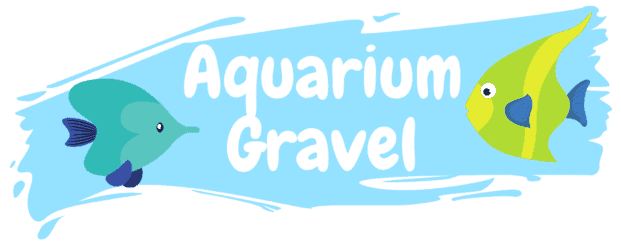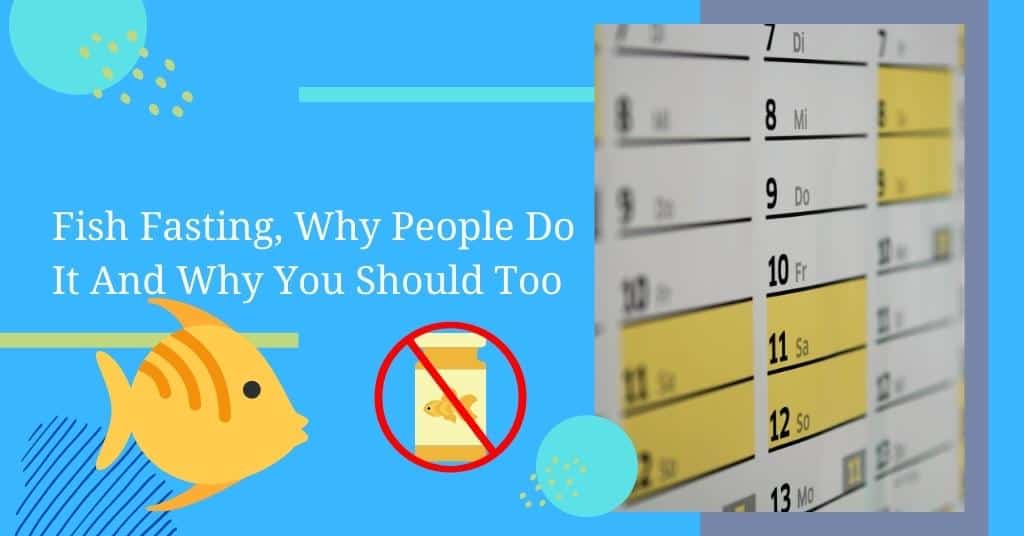Last Updated on March 22, 2022 by cmoarz
You may have heard the term fish fasting being thrown around in the hobby and might be confused as to why we fast our fish on occasion. There are actually several reasons fish fasting is done and it’s a practice that can be beneficial for your fish.

Reasons why fish fasting is incorporated into your fish feeding schedule
Table of Contents
There are a few primary reasons why fish fasting is important. The main one is that it gives the fish a chance to cleanse their digestive system.
When they’re constantly eating, their system never really has a chance to cleanse itself and can lead to health problems down the road, such as bloating.
Another reason is to treat overfeeding. Overfeeding can bring down the lifespan of your fish, and we’re all guilty of doing it from time to time.
Fasting can help balance this issue out and give the fish time to digest the food they’ve been overfed.
The last primary reason is to help induce spawning in certain species of fish. This isn’t as common, but if you’re looking to breed your fish, fasting can be a helpful tool.
And of course, there are several more reasons we as hobbyists would want to fast our fish.
From helping to keep the tank clean to fixing mild constipation, fish fasting is a great tool to have in your arsenal.
So, if you’re looking for a way to improve the overall health and wellbeing of your fish, consider adding fish fasting to your routine. It’s an easy and effective way to keep your fish healthy and happy!

How often should you start fish fasting?
Most people will recommend you start fish fasting at least one day a week in your fish’ feeding schedule.
Many people choose a Saturday or Sunday, But the day doesn’t matter as long as it’s fairly consistent week to week.
Some larger fish can go on multiple-day fasts if required (such as clearing up constipation), but smaller fish should only be fasted for one day.
Fry should never fast, nor should juveniles.

When not to fast your fish
If a fish is already malnourished or on a very light feeding schedule, you should avoid fasting as it can put undue stress on the fish’s system.
Also, if a fish is ill, fasting can actually make the illness worse (depending on what it is).
You should also not fast fry or any juvenile fish under 2 to 3 months of age. Small fish that are growing need to eat every day, And in some cases such as small fry, multiple times a day in order to grow healthy and survive.
If you deprive them of food, they can easily succumb to illness or death.
Extra caution should be taken when fish fasting smaller fish. Anything smaller than say, a neon tetra.
In this case, it’s better to cut the food amounts in half rather than remove it entirely for a fasting day.
Smaller fish require more food to keep going as they already eat such a small amount as it is. They also tend to be more active and expend more energy, so prolonged fasting can be dangerous for them.
Care should also be taken to avoid fasting pregnant livebearers. They are eating for many little fry and need all the nutrition and energy they can get.
If your aquarium is overstocked, fasting could also lead to aggression as fish become more territorial when they’re feeling hungry, as well as other issues.
Therefore, it’s important to use caution when fasting and make sure you know what you’re doing.
It’s always better to err on the side of caution, especially when it comes to fish health and welfare.
If you want to know if your fish is fish fasting compatible, A simple google search should be able to tell you.
And of course, when in doubt, ask a local fish store or aquarium professional. They should be able to guide you in the right direction when it comes to fasting fish tanks.

In conclusion, Should you fast your fish once a week?
If you’re looking to improve your fish’s overall health, then yes, fish fasting is a great way to do so.
It can help keep the tank clean, fix mild constipation, induce spawning in certain species of fish and help relieve any overfeeding bloat that might have occurred.
Just be sure to use caution when fasting, as it can be dangerous for some fish if not done correctly.
And of course, if you have any questions, feel free to ask a local fish store or aquarium professional. They should be able to guide you in the right direction.
Be sure to do the research on your specific breed of fish to make sure it can handle a 1 day fast, and to keep in mind all the cautionary notes I’ve mentioned in this article.
About
Owner of AquariumGravel.com and also owner of actual Aquarium Gravel believe it or not! ;). Setting up beautiful aquarium sceneries and habitats since I was very young. Enjoy!
- Web |
- More Posts(290)

